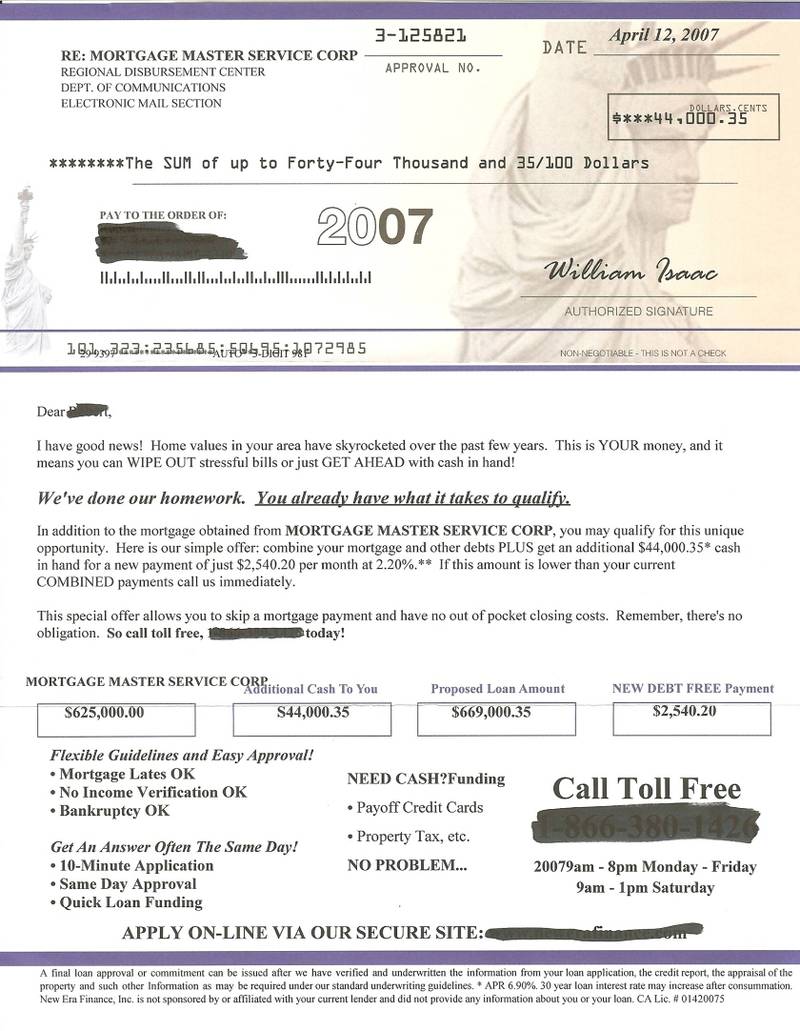How about something that looks like one? This arrived the other day to our home in a gold envelope looking very much like an income tax refund. Per Washington State law, this form of advertising from a mortgage company is illegal.
That’s just the beginning of what is wrong with this advertisement. This company appears to be offering to refinance our current mortgage plus give us $44,000.35 (don’t forget that 35 cents) cash in hand at the low rate of 2.20% (obviously a negative amortized/deferred interest ARM)! The ad shows two asterisks next to the rate… on the bottom of the flier, there is an * in very fine print disclosing an "APR of 6.90% 30 year loan interest rate may increase after consummation". Duh…ya think? The fine print also shows this lender is licensed in California, not Washington, to provide mortgages.
My point is, whenever a mortgage company has to resort to "cold marketing"… whether that be phone calling or deceitful pieces of mail aimed to look like something other than what it is (such as your IRS refund), they are not worth trusting your largest asset (your home) and debt (your mortgage) with.
I always advise getting a referral from someone you trust. Do your own homework. If it seems too good to be true, it is.















Recent Comments